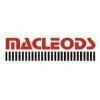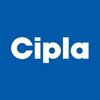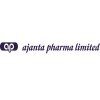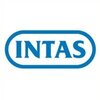Filter interviews by
GMH Organics Officer Interview Questions and Answers
GMH Organics Officer Interview Experiences
1 interview found
I applied via Referral and was interviewed in Jun 2021. There were 3 interview rounds.
Interview Questionnaire
1 Question
- Q1. How you can assure best quality of medicine
Interview Preparation Tips
Most one things only pharma student should be selected by interviewer
Top trending discussions






Interview questions from similar companies

I applied via Referral and was interviewed before Dec 2019. There was 1 interview round.
Interview Questionnaire
3 Questions
- Q1. Why should we hire you.
- Ans.
I bring a unique blend of skills, experience, and passion that aligns perfectly with your organization's goals and values.
Proven leadership skills demonstrated through my role as a team lead in previous projects, where I successfully managed a diverse group.
Strong problem-solving abilities, exemplified by my initiative in streamlining processes that increased efficiency by 20%.
Excellent communication skills, as shown i...
- Q2. What are your short term & long term goals.
- Ans.
My short-term goals focus on skill development, while my long-term goals aim for leadership and impactful contributions in my field.
Short-term goal: Enhance my technical skills through relevant certifications, such as obtaining a project management certification.
Short-term goal: Build a strong professional network by attending industry conferences and engaging with peers on platforms like LinkedIn.
Long-term goal: Aim f...
- Q3. When was this company established?
- Ans.
The company was established in 1990, marking the beginning of its journey in the industry.
Founded in 1990, the company started with a small team of dedicated professionals.
Initially focused on local markets, it expanded its reach globally by 2000.
The company has since evolved, introducing innovative products and services.
Interview Preparation Tips

I applied via Approached by Company and was interviewed before Jun 2021. There were 2 interview rounds.

(1 Question)
- Q1. How many years you stay in this organisation?
- Ans. This organisation is really good, if I thought I will continues upto retirement.
Interview Preparation Tips

I applied via Naukri.com and was interviewed in Dec 2020. There was 1 interview round.
Interview Questionnaire
1 Question
- Q1. Interview incident, oos, oot, GMP and GDP ICH GUIDELINES AND YOUR CURRENT HANDLING INSTRUMENTS
Interview Preparation Tips
Process wery difficult HUMMANERORR

Interview Preparation Tips
You need to stay calm and should apply presence of mind. Please go through the job description thoroughly word-by-word and recheck your resume to ensure that you are a best-fit for the position.
Skills: Communication

Officer Interview Questions & Answers
Akums Drugs & Pharmaceuticals Limitedposted on 17 Dec 2020
Interview Questionnaire
2 Questions
- Q1. What is difference between organic and inorganic chemistry?
- Ans.
Organic chemistry deals with carbon-based compounds while inorganic chemistry deals with non-carbon-based compounds.
Organic chemistry involves the study of hydrocarbons, alcohols, carbohydrates, proteins, and nucleic acids.
Inorganic chemistry involves the study of metals, minerals, and non-carbon-based compounds.
Organic compounds are generally covalent while inorganic compounds can be either covalent or ionic.
Organic c...
- Q2. What is lambert beer law?
- Ans.
Lambert Beer Law is a formula used to calculate the absorption of light by a substance.
It states that the absorbance of a substance is directly proportional to its concentration and the path length of the light through the substance.
It is commonly used in chemistry and spectroscopy to determine the concentration of a substance in a solution.
The law can be expressed as A = εcl, where A is the absorbance, ε is the molar ...

Interview Questionnaire
1 Question
- Q1. Roles and responsibilities
Interview Preparation Tips

Interview Questionnaire
1 Question
- Q1. Preparation of STD, split, buffers. BU test procedures, OOS, incident handling, Instrument handled

I applied via Walk-in and was interviewed in Nov 2020. There were 3 interview rounds.
Interview Questionnaire
1 Question
- Q1. Electrical basics & equipment handling questions
Interview Preparation Tips

I applied via Naukri.com and was interviewed in Sep 2020. There were 3 interview rounds.
Interview Questionnaire
1 Question
- Q1. Interview Questions on Chemistry
Interview Preparation Tips
Tell us how to improve this page.
GMH Organics Interviews By Designations
Interview Questions for Popular Designations
Overall Interview Experience Rating
based on 1 interview experience
Officer Interview Questions from Similar Companies
GMH Organics Officer Reviews and Ratings
based on 2 reviews
Rating in categories
|
Officer
7
salaries
| ₹1.9 L/yr - ₹3.5 L/yr |
|
Microbiologist
6
salaries
| ₹1.2 L/yr - ₹4.3 L/yr |
|
QA Officer
5
salaries
| ₹1.1 L/yr - ₹2.6 L/yr |
|
Executive
5
salaries
| ₹3.8 L/yr - ₹6 L/yr |
|
HR Officer
5
salaries
| ₹1.2 L/yr - ₹4 L/yr |

Cipla

Dr. Reddy's

Lupin

Zydus Lifesciences
- Home >
- Interviews >
- GMH Organics Interview Questions













